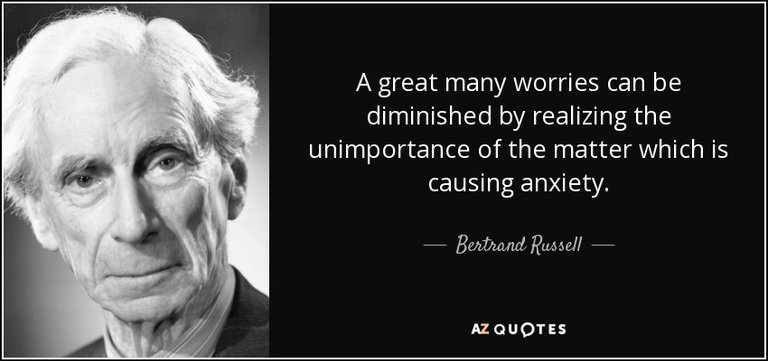
A World Without Worry
Where would we be without our worries? How would the dishes get done, the kids get fed, and our bills get paid? How would the floors get swept, the school assignment be completed, and birthday cards mailed on time?
Worries have long been crucial to our survival; they aren’t simply instruments of torture. Our ancestors who took leisurely strolls to relish the pleasures of a gorgeous fall morning were eaten up by sabre-toothed tigers—and their genes were lost. However, our paranoid, there-could-be-danger-around-any-corner, defender-of-the-family-tribe ancestors lived to reproduce, passing on to us an ever-present protective mode of worry.
Some degree of worry is truly good for us: It will help break us out of denial, and it will drive us to prioritise our tasks. Most vital, the worry is meant to be an initial response. Worry is the opening move in problem-solving. It kickstarts our effort to seek out solutions to issues by triggering our analytic process—evaluate the present situation; generate response options; select among them; choose one; then implement it.
Worry Enhances Our Analytical Skills
Once this method works well, we're able to conclude our analysis with a message like, “I’m distressed concerning finishing this project, and currently I’m going to take action. this can be how I’m planning to get it done—I have a plan.”
Worry isn’t supposed to solve issues. Its job is to send issues to the front of our minds. Thus we all know what to repair. And it causes us to assume more concerning how things would possibly fail than regarding a way to correct difficulties. After all, a way to avoid hassle is to imagine ourselves in that hassle. Imagine you're late for an arrangement and driving in a rush. As you approach the traffic signal, it turns yellow.
You momentarily contemplate taking the chance of running through the light, as a result of which will save you precious moments. Then a picture pops into your mind of things going extremely badly for you and others within the middle of that intersection. You instantly act and make a call to stop. That’s worry at its best.
Don't Dwell In The World Of Worry
But what happens if we don’t place our worries inside the problem-solving process?
We can pay a high emotional price for superfluous worry, and once our worries pop into our minds too often, those thoughts hurt us. Worry leads to a world of anxiety. The more time we spend on the edge being anxious and worried about the future the more concerned we tend to become—whether it’s concerning work, family, monetary problems, or illness. If we don’t address this sort of worry and notice ways in which to manage it, we continue to be concerned.
And worry completely inhibits our performance. Throughout any project, we should always focus our attention on the task. However once our attention keeps getting redirected toward unhelpful worry, we have a tendency to become self-absorbed: “How can I do? What if I fail? That will be too painful for me. I need to avoid failure at all costs!" There are rather powerful thoughts, and we all have hassle disengaging from them. However, if you wish your inner resources accessible for the activities you value, you need to seek out a way.

Good post! thanks